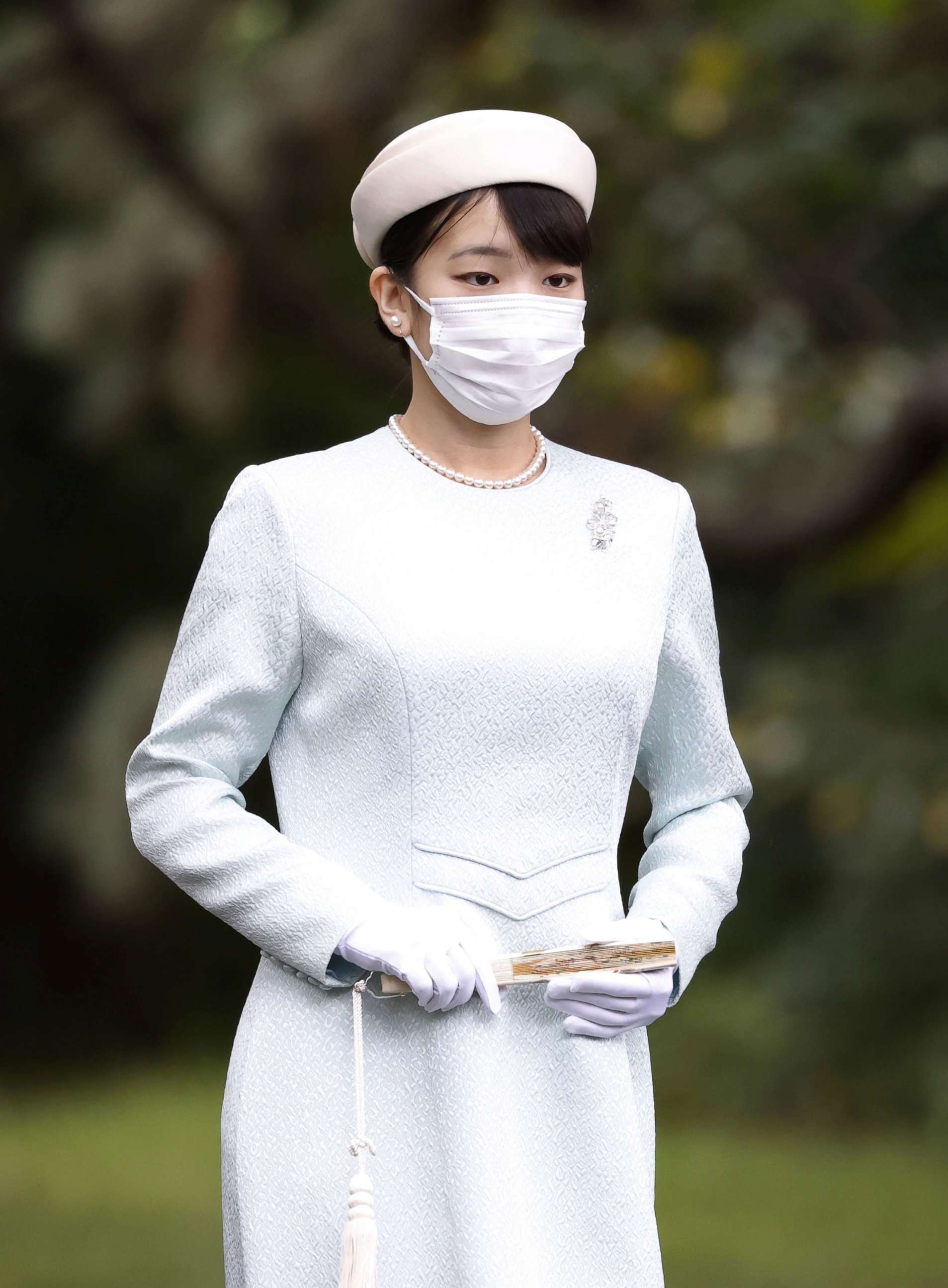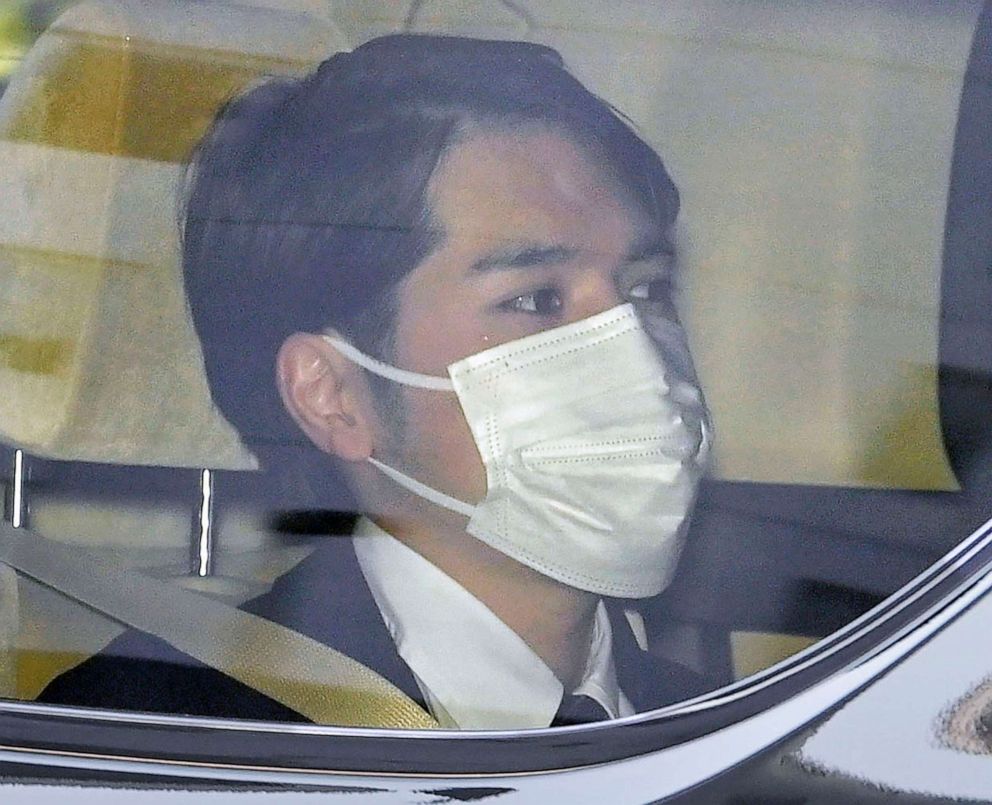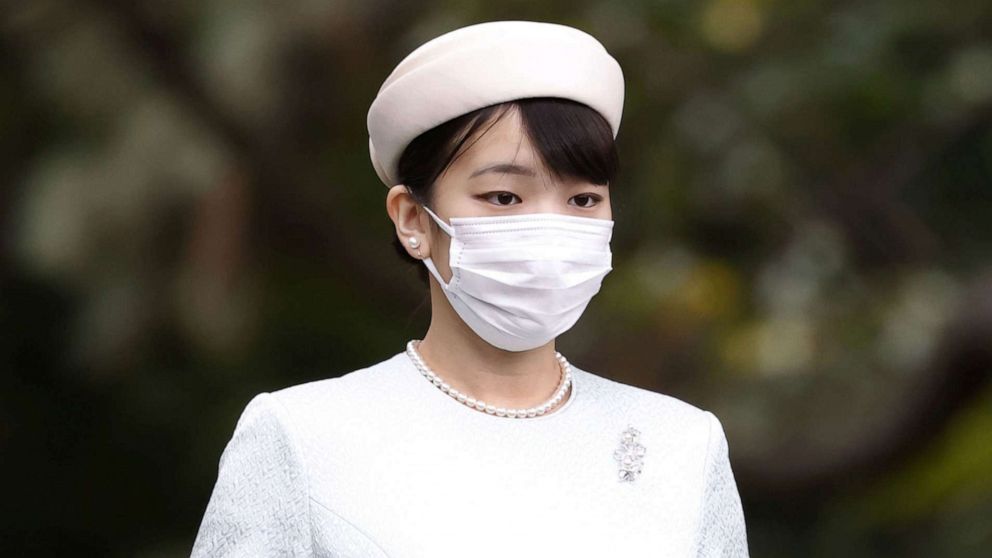What to know about the Japanese royal family as Princess Mako prepares to bow out
Princess Mako, niece to Japan's enthroned emperor, Naruhito, is planning to leave the imperial family, moving out of her family's estate on Oct. 26 when her marriage to Fordham-educated Kei Komuro is officially registered.
Female members of Japan's imperial family must renounce their royalty when marrying a commoner. After the high-profile scandal surrounding their courtship, Japanese royalty is being forced to consider not just its dwindling numbers but its future.
Komuro's mother, involved in an unresolved financial dispute, has been portrayed as a gold digger in tabloids, which have harshly criticized the couple. Princess Mako, an imperial household spokesperson told ABC News, is now suffering from PTSD because of the scrutiny.


Some among the nation's citizenry are questioning whether maintaining an emperor as a living symbol of the state is still necessary. In 2019, the aging but popular Emperor Akihito abdicated, citing his age and declining health. His son, Naruhito, assumed the throne to reserved fanfare.
The latest scandal surrounding the princess' fiance has left a bad taste in the mouths of many. Naotaka Kimizuka, a professor at Kanto Gakuin University who specializes in modern British and European political diplomatic history, said the Princess Mako courtship kerfuffle will take a historic toll on the Chrysanthemum Throne, adding: "The pair have already disgraced the heritage of Japan's imperial household."
Although Princess Mako has pledged to make a clean break from royalty, refusing the taxpayer-funded, one-time entitlement of 150 million yen (about $1.35 million), distrust remains. Many citizens aren't convinced they won't still be on the hook, even after the princess and her husband move to New York.
"The taxpayers will be paying for this in one way or expected to another," one Tokyo resident told ABC News. "If one is in the imperial family, they'll always be in the imperial family."
Japan's royal family, believed to be the world's oldest continuous hereditary monarchy, has seen its numbers dwindle. Currently, women can't ascend to the throne, so royal women marry commoners due to a lack of viable imperial suitors. Children from those marriages are then excluded from the imperial family line.
Hirokazu Matsuno, a government spokesperson, said in response to the question of dwindling numbers among Japanese royals: "The marriage of Princess Mako is scheduled for the 26th of this month. We wish her happiness, and prosperity for the imperial family. An expert panel has been established to address the issue [of dwindling numbers] in the imperial family. Detailed discussions are ongoing."
More than 80% of Japanese citizens, according to a Kyodo poll, said they'd readily accept either a male or female ascending to the throne, or even a male who descended just from a female member of the imperial family. Most conservatives, including Prime Minister Fumio Kishida, disagree. The question of female ascension is a common clash in Japan of liberal vs. conservative values.
Japan ranked 120th in a global gender-equality ranking of 156 countries, according to a 2021 World Economic Forum report. Attorney Kazuko Ito, secretary general of Human Rights Now, said she believes living human beings can never be a symbol.
"I think the treatment toward the royal family and system as a whole is inhuman," she added. "Exclusion from the royal family might be a good thing for female family members since they will get freedom for the first time as a human being, not as a restricted virtual role model."
Hideya Kawanishi, an associate professor of Japanese history at Nagoya University, believes that keeping together the imperial family helps keep together Japan.
"There is no doubt that the emperor of Japan is a symbol of Japan's unity as a nation," he said. "In fact, it can be said that the emperor is somehow holding together the fragmented Japanese society. I believe that the same phenomenon is occurring in the royal families of Europe, and that a monarchy is needed in the 21st century world and in Japan."




